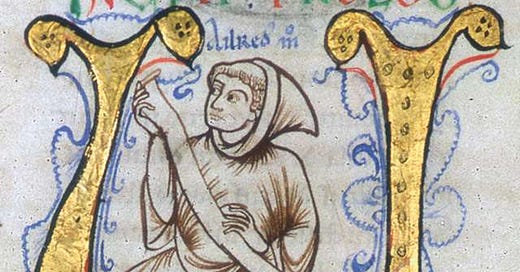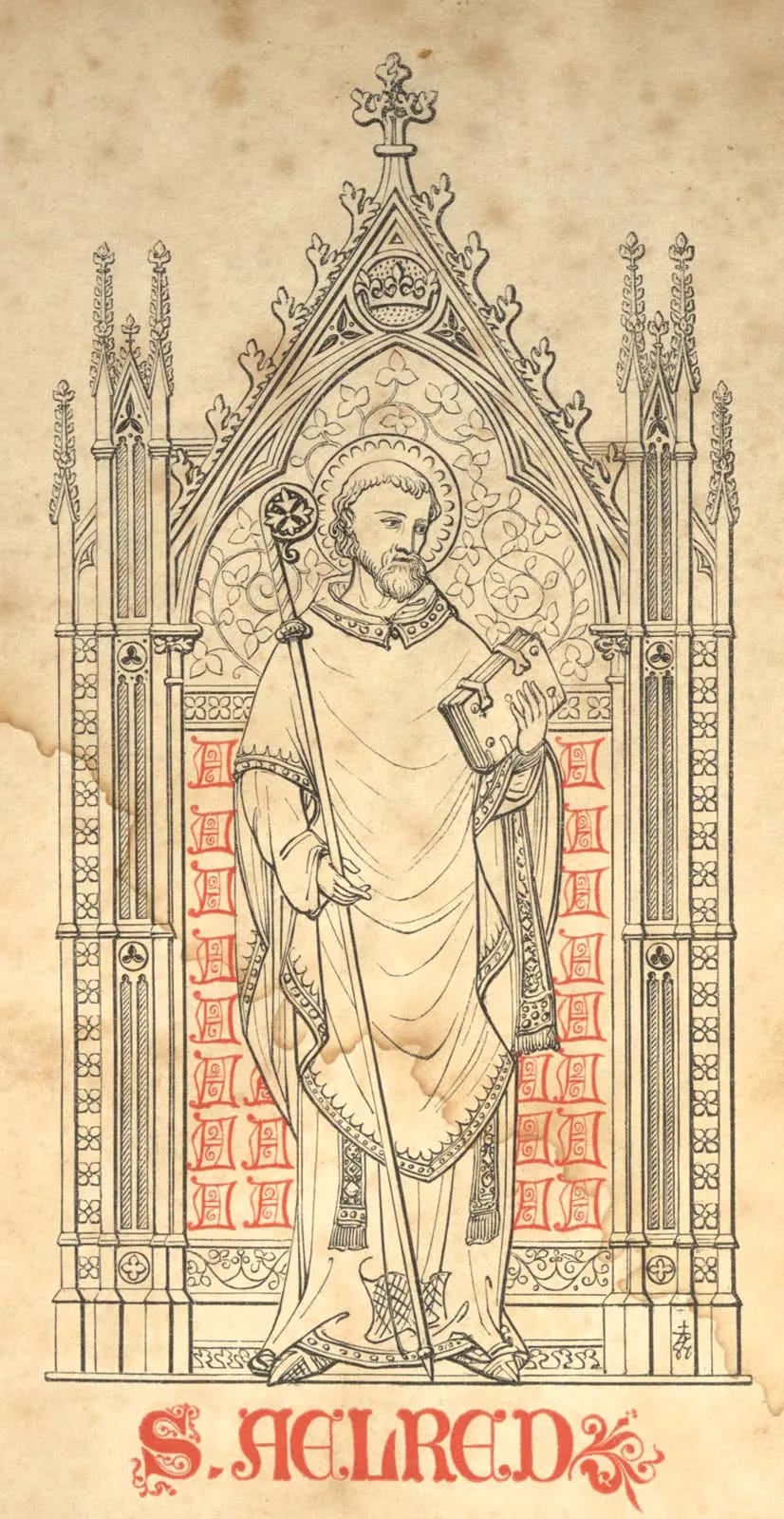In a discussion with Matthew Milliner this past weekend, he commented that he thought this post (possibly he meant the entire series) should be made available to everyone. After some consideration, I’ve decided to go ahead and do as he suggested.
This is the last of the series on Perennialism. For the next two weeks, I will be away. During that time, I have scheduled four posts to come out every few days: two will be updated, newly edited versions of older posts; one will be “new” to this Substack page, although it’s also an updated version of an older article — in this case, a 1998 article about Victor Hugo and his novel, Les Misérables; and the next post will be an audio recording of a talk I gave to budding young philosophers here in Norway on the subject, “The Christian Doctrine of Dispassionate Love” ( and that one will be available for everyone, not just paid subscribers). So, stay tuned.
***************
With this, the final post in this series, I ask for your patience as I expand on what I wrote in the previous post. I think the subject bears the emphasis I am inclined to put on it. Let me begin with a reference to the Prologue St. Aelred of Rievaulx (1110 – 1167) wrote to introduce his most famous treatise, On Spiritual Friendship (De spirituali amicitia). There he compared his reactions in later years when reading the works of ancient non-Christian authors, and Cicero in particular, with the enthusiasm he had felt for the same writings in his younger years. Back in his salad days, before he underwent a transformative experience of personal repentance, he had delighted intellectually and aesthetically in those classical texts. But, post-metanoia, their flavor had become flat to him. He read them still but was struck by how bland they seemed to him now. “I was astonished,” he wrote, “that they no longer had for me their wonted savor.” I am reminded of St. Jerome (c. 347 – c. 420), who also had once cherished a great love for Cicero. What changed his feelings, as he recounted, was a startling dream he had in the year 375. In it, Jerome saw himself hauled before the Lord’s tribunal, corporally chastised, and accused of being a “Ciceronian” and not a “Christian.” Consequently, he swore off Cicero and other “worldly books” with the vehemence of a recovering addict (Jerome never did anything halfway). [1] But I digress. St. Aelred, Jerome’s junior by eight centuries, underwent nothing so traumatic. He simply found that now something was lacking when he tried to reread the old texts. He tells us in no uncertain terms what it was for him that was missing: “For now [after his change of heart] nothing which had not been sweetened by the honey of the most sweet name of Jesus, nothing which had not been seasoned with the salt of Sacred Scripture, drew my affection so entirely to itself.” [2]
A footnote appended in my Cistercian Publications translation of Aelred’s treatise supplements this sentiment with similar statements made by Sts. Augustine (354 – 430) and Bernard of Clairvaux (1090 – 1153). Regarding Cicero’s corpus, Augustine wrote that what “checked” him from continuing to read it was that “the name of Christ was not in it” (Confessions 3:4). And Bernard, Aelred’s friend and mentor, in his fifteenth sermon On the Song of Songs wrote:
But that name of Jesus is more than light, it is also food… Every food of the mind is dry if it is not dipped in that oil; it is tasteless if not seasoned by that salt. Write what you will; I shall not relish it unless it tells of Jesus. Talk or argue about what you will, I shall not relish it if you exclude the name of Jesus. Jesus to me is honey in the mouth, music in the ear, a song in the heart. (On the Song of Songs, 15:6)
The early Cistercians, like medieval writers in general, sometimes used rhetoric we moderns might find flowery, but be that as it may, there’s a theme to be noted here despite the extravagant wording that bears on our last few posts. Setting aside the references to Cicero and other classical literature, what is relevant for us is the matter of the centrality of Jesus Christ, and no more so than when we tackle any notion of Perennial Philosophy. As I noted in the last essay, the name philosophia perennis originated with Christian thinkers in the 15th century, and none of those thinkers (we have their biographies) would have countenanced – to use the words of St. Bernard – “excluding the name of Jesus.” Indeed, the opposite would be true. Whatever else can be said about the “Perennialist” speculations of the most noteworthy of those who inspired the “school” (if such it can be called) – Marsilio Ficino (1433 – 1499; a Catholic priest), Giovanni Pico della Mirandola (1463 – 1494; disciple of Ficino, a friend of Savonarola, and responsible for the so-called “Christian Kabbalah”), and Agostino Steuco (1497/8 – 1548; an Augustinian canon, bishop, Counter-Reformation polemicist, and representative of Pope Paul III at the Council of Trent, who also coined the term philosophia perennis) – their decidedly Christian convictions cannot be held in any doubt. My chief point is to note again that the Perennial Philosophy is more profoundly Christian in its origins and outlook than is often acknowledged. If pressed to name a single exemplary representative in modern times of the original, specifically Christian nature of Perennialist thought, I would probably choose that unabashed Christian scholar, Huston Smith (1919 – 2016) – even over Bede Griffiths and Swami Abhishiktananda. [3] Nor can readers of the finest in Perennialist scholarship ever get very far away from its Christian underpinnings.
Which is to say that I’m not expressing anything new when I bring up the centrality of Christ vis-à-vis Perennialist thought; rather, I’m hearkening back to some basic premises – ones fundamental, at least, for any pragmatic Christian engagement with a Perennialist viewpoint. And that brings me back to Aelred and the others I mentioned earlier. Their concern for the centrality of Christ – Christ as truly living, (omni)present, literally risen from the dead, and active in the world through his Spirit – is not of secondary importance; it is non-negotiable. It is also the lived experience of countless believers down the ages. That is what constitutes the Christian Tradition at its purest – and I trust I don’t need to add (although I will) that the integrity of Tradition itself (that is to say, every Tradition that seeks to encounter what is ultimate) is of vital importance to Perennialist thought. Perennialism may at times flirt shamelessly with syncretism (even Huston Smith wasn’t free from that charge), but the two are not the same thing. The latter will usually tend to be eclectic, shallow, novel, and amorphous, not to mention given to prolixity and abstractions. A case could be made that syncretism – unlike a healthy, modest philosophia perennis – is frequently only a step away from the slippery edge of nihilism. When all religious/spiritual systems are deemed to be inherently “true,” which involves a failure – calculated or not – to recognize where they differ, sometimes radically, from one another (Buddhism stands in contradistinction to other forms of Indian religion, for example, Islam stands in contradistinction to Christianity… and so forth), then no single Tradition understood on its own terms can possibly be considered true. At some point, a concocted “Bigger System of Truth” will show its cracks to the more alert mind. Instead of a “Bigger Truth,” then, what one is left with is squeezed-out abstractions – reduced in status to concepts, myths, and metaphors – that can be made to appear congruent on the surface, but not in depth. The effort to fit them all together is something like taking pieces from different puzzles and trying to force them into a coherent picture. Along the way, pieces will be discarded, some deformed, and the result will look artificial at best.
For the Christian Tradition, the Incarnation and resurrection of Jesus are not mere “concepts” or “myths” or “metaphors.” They are concrete, specific, and historical realities. Whatever metaphorical, mythical, and conceptual power they possess comes after the fact. Thus, when the Christian engages Perennialism, he doesn’t regard his faith as “included among” the world’s “other” religions and spiritual traditions (when I say “Christian,” I specifically mean those whose faith aligns with the historical creeds, embraces the Scriptures, and abides within the broad boundaries of the ancient apostolic Tradition – in other words, the Christian “perennials”). He regards the world’s religions and spiritual traditions – along with everything else in creation and human existence – as subsumed by God through the one Incarnation of the Word. [4] Through the Incarnation, they are destined to be refined. As I said in the previous post, for the Christian there can be no talk of transcending the person of Jesus or – God forbid – claiming to share his “Christ consciousness” (whatever that means; it certainly doesn’t mean, understood in the context of 1 Corinthians 2, what Paul meant when he said, “But we have the mind of Christ” – ἡμεῖς δὲ νοῦν Χριστοῦ ἔχομεν [5]).
“But that name of Jesus is more than light, it is also food… Every food of the mind is dry if it is not dipped in that oil; it is tasteless if not seasoned by that salt.” Does that mean, then, that the Christian cannot in effect engage in a version of the philosophia perennis? As we saw in the previous post, that very thing has been done – if not under that name – since the time of Justin Martyr and Clement of Alexandria (if we don’t count Paul addressing the philosophers in Athens). Pragmatically, there is no reason why a Christian shouldn’t acknowledge truth wherever it’s found. St. Aelred found reading Cicero less stimulating in his later years than he did as a young, intellectually vibrant young man because it lacked the “sweet” name of Jesus and the “salt” of the Scriptures. In my own case, on the other hand, I have found that when I read, as I do, the great classics of philosophy and religion – the writings of Zhuangzi or Mencius, perhaps, or the Upanishads or the Dhammapada or the old Zen masters, or Plato or Epictetus or Plotinus, and so on – I read them through Christ (which might be evident, for instance, to those familiar with my (flawed) book, The Ox-Herder and the Good Shepherd). Indeed, I can do no other. In those writings, I frequently find parallels and intimations of the presence of the Word and the Spirit – and even of the Father in the “Ancestor” of ancient Taoist philosophers such as Hsieh Ling-yün. When I read through Christ, I recognize the traces of the perennial Spirit of God at work in many such works. Nor do I miss the name of Jesus or the Scriptures when I read these other texts, because I daily immerse myself in both. It is because I am invested fully in the Christian Tradition – with its conviction that God became human – that I can recognize the same presence, often obscured but sometimes surprisingly disclosed, in those pages. The same has been true when I have interacted directly with persons immersed in a different faith than mine. It doesn’t lessen my faith in Christ to acknowledge the veracity I see in other faiths.
This, to my mind, is the modest and pragmatic Perennialism that a Christian can embrace. There is no need to involve oneself in extravagant and wordy speculation, engage with “the devil of intellectualism,” strain to fit disparate puzzle pieces together artificially or reduce everything to scooped-out abstractions to make them appear as One Big Abstraction. If that’s Perennial Philosophy, then I really can’t be bothered with it. I have a living prayer practice to maintain, after all. (“Write what you will; I shall not relish it unless it tells of Jesus. Talk or argue about what you will, I shall not relish it if you exclude the name of Jesus.”) If instead, however, it’s an invitation to explore wisdom and truth wherever they are to be found – through Christ – then, for me, its appeal remains strong.
[1] Jerome, Letter XXII, 30.
[2] Aelred of Rievaulx, Spiritual Friendship, Translated by Mary Eugenia Laker SSND, Introduction by Douglass Roby (Kalamazoo, 1977), p. 46.
[3] I remain indebted to his memory, grateful for his complimentary cover endorsement of my book, The Ox-Herder and the Good Shepherd.
[4] Some of us may recall the theologian-turned-philosopher, John Hick’s collection of essays (by himself and colleagues), The Myth of God Incarnate (1977). For Hick et al, the great stumbling block was precisely the “idea” of Jesus as God Incarnate, which they relegated to the level of humanly fabricated mythology. And, of course, he was right to see it as a stumbling block for many if it is only a concept. At least, unlike some others I could name, Hick had the integrity to cease calling himself a Christian. But the Incarnation isn’t up for grabs, and Christians are those who explicitly affirm it as literal truth that “God became man,” “the Word became flesh,” in Jesus of Nazareth.
[5] What Paul means in 1 Corinthians is closer to what the Orthodox mean when they refer to the “Orthodox phronema (φρόνημα)” – a mind shaped and conformed to the revelation of God in Christ, as handed down by the apostles and kept alive within a loyal and careful transmission of that Tradition (παράδοσις). In the West, it was precisely this that St. Bernard was defending in his famous (or infamous) polemic against Peter Abelard in the 12th century. Bernard quite rightly saw the dangers of a false intellectualism – with its potentially corrosive notion of “truth” as emerging from doubt instead of from faith – which have continued to play havoc in Western Christian theology and piety (the two were divorced by its intrusion, it should be noted) from his time to the present.








Thank you so much, Addison, for continuing to put out these thoughts. It’s remarkable in my older age how little of what interested and sustained my interest still works for me. How I find myself wanting that spiritual food more consistently in what I read. I definitely resonated with what you said about friends of different faiths—I too find myself able to strain out the differences and see where the truth of the gospel can obviously be found and this puts a stopper in my mouth to attempt some verbal evangelizing, affording me an opportunity for a little humility. Thank you again!
I lived in a version of this error for decades, albeit in a kind of benign, well intended, suburban, busy at work way. I wised up a few years back, and appreciate the corrective reinforcement.